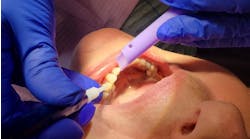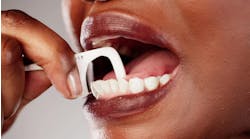Thursday Troubleshooter: Is this dentist skirting the law with his coding practices?
Problems! Who doesn't have them? If you have a problem or concern in your dental office position, you might be too close to the situation to solve it yourself. Share your concerns with Team Troubleshooter. The experts will examine your issues and provide guidance. Send your questions to [email protected].
QUESTION: I work the front desk of a small dental practice where the doctor himself handles the coding and I collect payment after patient visits. Lately, I’ve started to question the doctor’s ethics and the legality of some of his practices. He will bill for an office visit (9430, which is typically not covered by insurance) and a problem-focused exam (0140) in the same visit. My understanding is that this is not allowed. Moving forward, he does not want to bill 9430 to insurance at all as it is usually not a covered service and therefore, he can charge his office fees. (These are his words.)
Also, since most insurances cover cleanings only twice a year, can he charge patient office fees and not bill to insurance for additional cleanings? I’d like some clear answers before I begin to lose all trust in my employer.
ANSWER FROM LAURIE OWENS, CPB, CPC, Director of Medical Billing Education, DevDent.com:
Let's look at the definition of the codes you mention:
D9430 — Office visit for observation (during regularly scheduled hours), no other services performed
D0140 — Limited oral evaluation, problem-focused
An evaluation limited to a specific oral health problem or complaint may require interpretation of information acquired through additional diagnostic procedures. Additional diagnostic procedures should be reported separately. Definitive procedures may be required on the same date as the evaluation. Typically, patients receiving this type of evaluation present with a specific problem, dental emergency, trauma, acute infection, etc.
Going by the definition, you cannot charge any other services with the D9430. It may be possible that the doctor does not know there are specific definitions to the codes that will create a red flag to your billing. There is an after-hours code, but that is used when you see a patient outside of the office’s scheduled hours. In other words, the incorrect billing will mark your office for improper billing, and this could very well bring in, at the least, a complete practice audit. I would direct the doctor to Dr. Roy Shelburne's biography. He is a dentist who went to jail for insurance fraud.
If your office is contracted with the insurance, you must bill for all services. Because there are only two cleanings allowed per year, you will have to make a fee adjustment only and the patient will be responsible for your contracted amount.
I hope this information will help you stand your ground with your doctor from a legal aspect.
RECENT TROUBLESHOOTERS
What can frustrated dentist do about ADA coding system?
Cropped pants and OSHA in the dental practice
How to solve bickering between dental assistants and hygienists
Don't be shy! If YOU have a tough issue in your dental office that you would like addressed, send it to [email protected] for the experts to answer. Remember, you'll be helping others who share the same issue. Responses will come from various dental consultants, as well as other experts in the areas of human resources, coding, front office management, and more. These folks will assist dental professionals with their various issues on DentistryIQ because they're very familiar with the tough challenges day-to-day practice can bring. All inquiries will be answered anonymously each Thursday here on DIQ.






